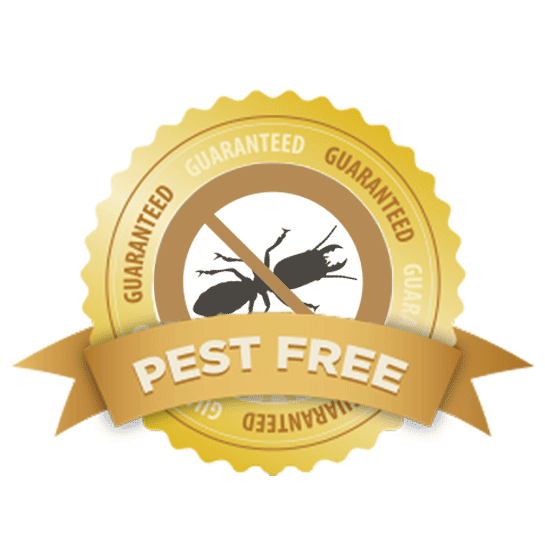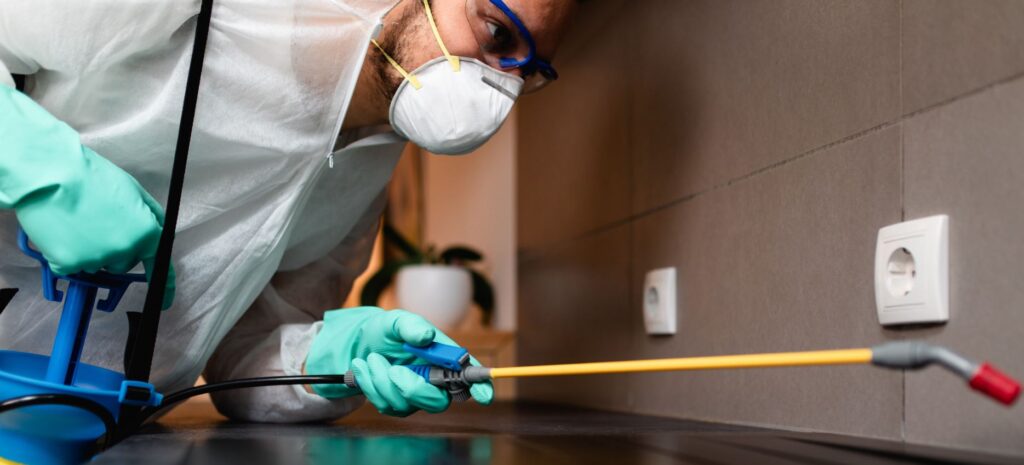Professional Wasp Control Coquitlam: Safe and Efficient Pest Removal
Professional Wasp Control Coquitlam: Safe and Efficient Pest Removal
Blog Article
Safe and Reliable Pest Control for Lasting Security
Effective bug management needs a complex method that balances environmental honesty with the need for effective parasite suppression. The nuances of these approaches may not be promptly clear, prompting a better exam of the practices that can lead to sustainable bug control end results.
Understanding Bug Control Approaches
Insect control includes a selection of approaches aimed at managing and removing undesirable pests and rodents that can threaten both health and wellness and building. Understanding these methods is important for effective bug monitoring.
The main categories of insect control approaches include mechanical, biological, and chemical techniques. Mechanical techniques entail physical obstacles and catches to stop pest entry and capture unwanted species. Using screens on windows or using sticky catches can dramatically lower bug populaces without introducing hazardous substances - exterminator coquitlam.

Chemical parasite control is commonly the most identified technique, utilizing chemicals to eliminate parasites. These chemicals can be efficient but need to be used with care to prevent negative effects on non-target varieties and the environment.
Advantages of Eco-Friendly Solutions
Just how can eco-friendly solutions transform insect control techniques? The fostering of eco-friendly insect control techniques provides many advantages, dramatically boosting the performance and safety and security of pest management.

One more advantage is the positive effect on regional biodiversity. Environmentally friendly solutions are made to target certain insects while preserving beneficial pests and wildlife, promoting a well balanced community. This approach straightens with the growing customer need for sustainable techniques, enhancing the reputation of bug control companies.
Integrated Pest Monitoring Techniques
The implementation of environment-friendly solutions naturally causes the adoption of Integrated Bug Management (IPM) approaches, which even more boost insect control efficiency. IPM is a holistic technique that combines several tactics to handle parasite populations while reducing ecological impact. This method stresses the use of organic, social, mechanical, and chemical controls, guaranteeing a sustainable and balanced approach of pest administration.
One basic facet of IPM is the extensive analysis of pest activity and environmental problems. By monitoring pest populations and determining their life process, practitioners can apply targeted treatments that disrupt the parasite's habitat or lifecycle, minimizing dependence on chemical pesticides. In addition, social practices such as crop rotation and habitat control can substantially lessen pest establishment and reproduction.
Another vital element is the usage of organic control representatives, such as valuable pests or microorganisms, which can naturally suppress pest populations. When chemical applications are necessary, IPM prioritizes making use of low-risk chemicals and uses them uniquely, decreasing direct exposure to non-target microorganisms and human beings.
Integrating IPM methods not just enhances insect control efficiency but also advertises a more secure ecological community, straightening with the expanding demand for sustainable practices in parasite monitoring.
Safe Practices for House Owners
Comprehending the significance of safe practices in parasite control can encourage house owners to efficiently manage pest concerns while securing their health and wellness and the environment. Applying safe techniques and preventive actions is important in minimizing direct exposure to damaging chemicals.
Homeowners must first evaluate their setting for conditions that draw in pests, such as standing water, clutter, and food waste. Frequently cleansing and securing access points can prevent parasites from invading the home. Using all-natural deterrents, such as important oils or diatomaceous planet, can give effective options to chemical pesticides.
When chemical therapies are essential, homeowners must select items that are specifically identified as risk-free for household usage. It is vital to comply with application standards diligently to stay clear of overexposure. Using targeted treatments in areas where insects are determined, rather than blanket spraying, can considerably decrease chemical use.
Lastly, maintaining open interaction with insect control specialists is essential. Homeowners need to ask about the safety and rat control coquitlam security of products made use of and demand green alternatives whenever feasible. By embracing these risk-free practices, property owners can create a healthier living setting while properly taking care of bug issues.

Tips for Long-Term Security
Establishing a parasite monitoring method that emphasizes long-term defense can considerably enhance the performance of the risk-free practices formerly gone over. To accomplish this, homeowners coquitlam pest control must execute regular assessments of their home, focusing on concealed areas such as attic rooms, basements, and crawl rooms. Early detection of parasite activity is crucial in protecting against invasions from holding.
These practices decrease attractants that attract parasites into the home. Sealing entrance factors, such as splits around windows and doors, can effectively block prospective insect gain access to.
Landscape design needs to also be thought about; keeping plants trimmed and preserving a range in between plant life and the home pest control service coquitlam minimizes hiding spots for insects. Using natural deterrents, such as necessary oils or diatomaceous planet, can better discourage infestations without resorting to harsh chemicals.
Lastly, collaborating with an expert insect control service for periodic assessments can offer an additional layer of safety and security. These professionals can provide tailored recommendations and advanced therapies, making certain that your home continues to be shielded versus bugs in the lengthy term.
Final Thought
To conclude, safe and dependable pest control calls for a diverse strategy that highlights environment-friendly techniques and incorporated bug administration. By executing natural deterrents, performing routine evaluations, and maintaining correct cleanliness, home owners can significantly lower insect populations while shielding useful insects and the setting. Partnership with professional bug control services boosts the effectiveness of these approaches, making sure tailored options that provide long-term security and comfort against future problems.
Effective parasite administration calls for a multifaceted strategy that balances environmental integrity with the requirement for reliable insect reductions. The adoption of environment-friendly pest control techniques supplies various advantages, significantly improving the performance and safety of bug monitoring.The implementation of environment-friendly solutions naturally leads to the fostering of Integrated Parasite Management (IPM) techniques, which further boost pest control effectiveness. exterminator coquitlam. By checking pest populations and determining their life cycles, experts can implement targeted interventions that interrupt the bug's environment or lifecycle, lowering reliance on chemical pesticides.In conclusion, trusted and safe pest control requires a diverse method that highlights environment-friendly approaches and incorporated parasite monitoring
Report this page